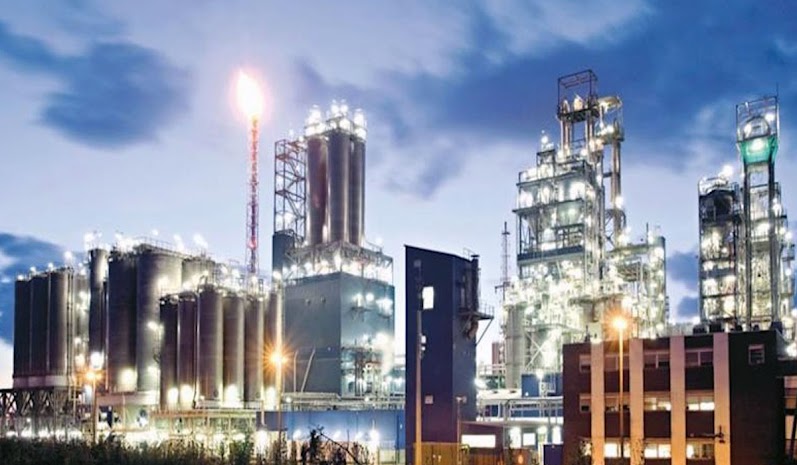Singapore's economy is a well-developed free-market economy with dirigisme features. Singapore's economy has previously been classified as the most open, the joint fourth least corrupt, and the most pro-business in the world. Singapore has low tax rates and the world's second-highest purchasing power parity per capita GDP (PPP). Singapore is the headquarters of the Asia-Pacific Economic Cooperation (APEC).
Singapore went from being a low-income country to a high-income one in just a few decades after independence. The city-GDP state's growth has been among the highest in the world, averaging 7.7% since independence and surpassing 9.2% in the first 25 years.
Manufacturing became the main driver of growth after rapid industrialization in the 1960s propelled the island nation's development trajectory. Singapore achieved full employment in the early 1970s, and a decade later joined Hong Kong SAR, Republic of Korea, and Taiwan as Asia's rapidly industrializing economies. Singapore's high-value-added economy is however centered by the manufacturing and services industries.
Which industries in Singapore boost the economy?
The manufacturing sector is by far Singapore's most important industry, accounting for 20 percent to 25 percent of the country's yearly GDP.
Electronics, chemicals, biomedical sciences, logistics, and transport engineering are key industry clusters in Singapore's manufacturing. The manufacturing sector increased by 35% in the third quarter of 2017, with clusters like electronics and precision engineering benefiting from strong demand.
Singapore's financial services industry is second only to its manufacturing sector in terms of development, thanks to the country's pro-business environment and political stability. Singapore's financial services marketplace, which is home to over 200 banks and is a preferred regional hub for many global financial services organizations, promotes the movement of knowledge, processes, technology, and skills between global, regional, and domestic markets.
Medical technology, aerospace engineering, sustainable energy, healthcare, and content development are some of the other developing businesses that contribute significantly to Singapore's economy.
Singapore's Biggest Industries
Services in the Financial Sector
Because of the superior financial services provided by its banks and other financial institutions, Singapore is now considered a worldwide financial center. Indeed, according to the 2017 Global Financial Centers Index, the country ranked third in terms of financial industry competitiveness. Only two cities were ranked higher: New York City and London. Internet banking, various currency support, savings accounts, checking accounts, wealth management systems, and a variety of other appealing services are among the services provided by financial institutions.
However, human rights organizations such as Human Rights Watch have criticized the sector. According to this organization, the country's banking system also provides services to criminals and corrupt individuals, such as the billions of dollars lost by Burma after state gas revenues went missing. Despite these complaints, the sector remains thriving, attracting people and businesses who previously banked their money and assets with Swiss banks. The attraction of new assets from Swiss banks is aided by the Swiss government's increasing taxation and relaxation in the secrecy for which they are known. Credit Suisse, one of Switzerland's top banks, relocated one of its executives to Singapore.
Naturally, the government is making strenuous efforts to ensure that the industry develops further. The government's proposal was stated in a study released by Singapore's Monetary Authority (MAS) in 2017. The government aspires to be the global leader in wealth management, among other things, according to the strategy. To achieve these objectives, the government will work on issues such as developing private market finance rules that will allow Asian businesses to access investors, increasing the bankability of infrastructure projects in Asia, and other initiatives.
Infrastructure And Energy
Singapore is important in Asia since it is both a major oil trading hub and a price center. The oil industry provides around 5% of the overall gross domestic product on its own (GDP). Singapore is one of the top three countries in the world with export refining centers, which explains the large contribution. The country's oil exports totaled roughly 68.1 million tons in 2017. Other industries, such as the chemical industry and the manufacturing of gas and oil equipment, have benefited from the oil exporting sector.
Singapore supplies 70 percent of the world's jack-up rigs and Floating Production Storage Offloading (FPSO) unit conversions, according to market share. Singapore also meets roughly 20% of the world's ship maintenance demands, which translates to around 70,000 jobs. The country is building underground caverns that store petroleum products to strengthen the sector even further. There will be more prospects for investors in the sector from all around the world as the industries are expanded.
However, like any other industry, the oil business is not always stable. A slowdown in the business has resulted in a decrease in the number of projects over the last three years. However, new developments are projected in the coming two years, based on the forecast.
Biotechnology
Singapore has the most biotechnology facilities in the region. The government has been able to attract international investors in a variety of methods, including offering incentives to prospective investors and pumping millions of dollars into the sector. For example, GSK, one of the world's largest pharmaceutical companies, committed $300 million in the development of a plant to manufacture pediatric vaccines. The country invested $16.1 billion in the sector between 2011 and 2015.
Singapore is home to a number of worldwide manufacturers. MSD, Novartis, Abbott, and others are among the companies involved. Both of Singapore's main "Biotech Parks" are open to foreign companies looking to invest. These parks benefit these businesses by providing tax exemptions, infrastructure, and incentives.
Medical Tourism And Tourism
Another key economic area is tourism. An estimated 15 million tourists visited the country in 2014. In an effort to grow the industry, the government recently allowed casinos in 2005. Singapore has developed itself as a medical tourism center in addition to traditional tourism. Approximately 200,000 individuals visit the country each year for medical treatment. The goal is for at least one million medical tourists to visit each year, generating around $3 billion in revenue.
Technologies of Information and Communication (ICT)
Another important area that has contributed to the economy's development is information and communications technologies (ICT). The government closely monitors and regulates the industry. Because the country is small and traffic congestion is common, the transportation industry is likewise closely regulated. Private car owners must pay high fees to drive their vehicles.
Sources:
Singapore Overview: Development news, research, data | World Bank
List of Companies in Singapore 2022 | (ampliz.com)
What makes the Singapore economy tick? | GuideMeSingapore - by Hawksford











0 Comments
please do not enter any spam link in the comment box